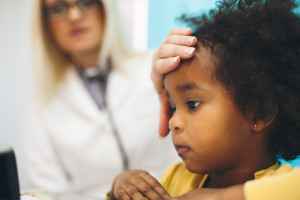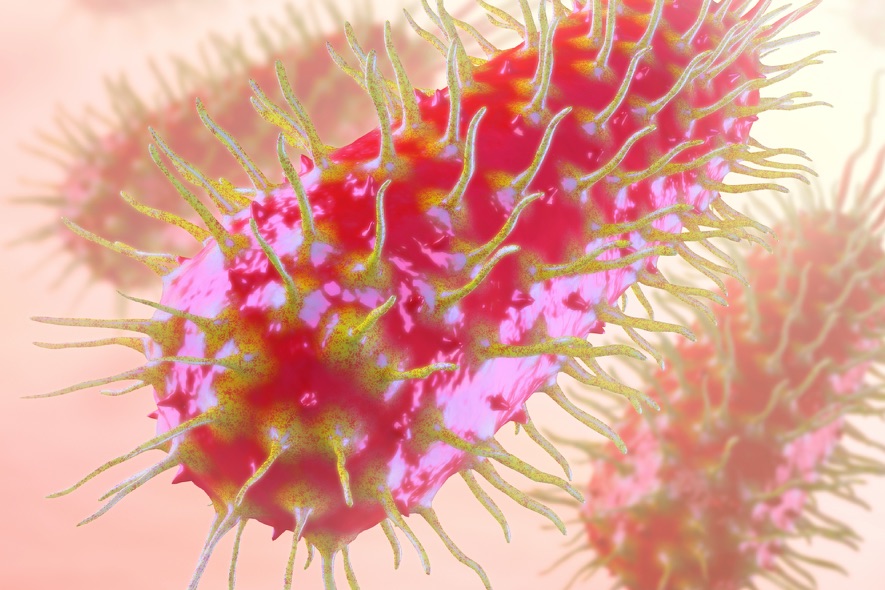Should You Vaccinate Your Child?
 Did you know that vaccines help prevent more than 2 million deaths among young children (under 5) each year? People remain split over immunization and we think that misinformation has played a heavy hand in this. In honor of National Immunization Awareness Month in August, we’ll take a look at the risks v. benefits of getting your children vaccinated.
Did you know that vaccines help prevent more than 2 million deaths among young children (under 5) each year? People remain split over immunization and we think that misinformation has played a heavy hand in this. In honor of National Immunization Awareness Month in August, we’ll take a look at the risks v. benefits of getting your children vaccinated.
Should you get your child vaccinated? This is an answer that each parent needs to answer for themselves. The goal of this post is to provide you with enough information to make a choice you’re confident in.
As mentioned before, vaccinations save many lives each year. Most medical experts would agree that they are one of the most significant medical breakthroughs of the 20th century. Vaccines have helped eliminate the threat of polio in most of the world. Without them, diseases like hepatitis C and tetanus could reach epidemic proportions.
How Does a Vaccine Protect My Child?
The vaccine (otherwise known as an immunization) contains antigens that can produce disease. Puzzling? The antigens in the vaccines have been weakened or exterminated. Now here is the key to it’s success. When these incapacitated antigens are introduced into the body, the immune system will still create the necessary antibodies to combat this intruder.

Vaccines defend against many deadly illnesses.
Young children will come into contact with hundreds of antigens each day. This is why the immunization will not cause any undo stress to the healthy immune system.
Like any new drug, vaccines are extensively tested in clinical trials to determine their effectiveness and tolerability. The Centers for Disease Control (CDC), the American Academy of Pediatrics and the American College of Immunization Practices determine their immunization schedules and recommendations based on this clinical data.
Risks Associated with Immunizations
Studies have shown that vaccinations are safe for most children, however 100% is something we don’t really see in the medical industry. A child whose immune system has been impaired or permanently weakened may not be able to handle the vaccination they receive.
Medical experts advise against vaccinating children who are battling cancer or other serious illnesses. They are being administered drugs that lower their body’s ability to resist infection. While a vaccine’s antigens are inactive, a weakened immune system may not be able to produce the desired antibodies.
You should talk to your pediatrician about this in more detail. There may be other reasons not to have them vaccinated.
A real risk that can be linked with vaccines is the one that unvaccinated children pose in today’s world. It puts more children at risk, especially those who can’t receive a vaccination while combating another serious illness. If more individuals are vaccinated, it makes it much harder for the disease to spread– just look at how the HPV vaccine has changed things.
A Case of the Chickenpox
Every single medical procedure has an inherent risk of side effects. So yes, vaccinations can cause some side effects. Here’s a quick breakdown:
- 1 in 5 children may experience some soreness or swelling around the area of the shot
- 1 in 10 may develop a mild fever
- 1 in 25 may develop a mild rash
Let’s compare that to the risks unvaccinated children face from a disease like the chickenpox:
- 1 in 10 who develop the chickenpox will need to visit their doctor or a hospital
- Most chickenpox sufferers develop anywhere between 200 and 500 sores across their bodies
- Before the vaccine was introduced in 1995, 10,600 people were hospitalized each year with chickenpox in the US
Studies have shown that the benefits of immunization far outweigh the side effects. That vaccine can protect your child against things that are far more dangerous than a mild rash. This may seem like a biased post and it kind of is. 1 child dies every 20 seconds from a disease that could have been prevented by a vaccine. If immunization is a possibility for your family, we highly recommend it.